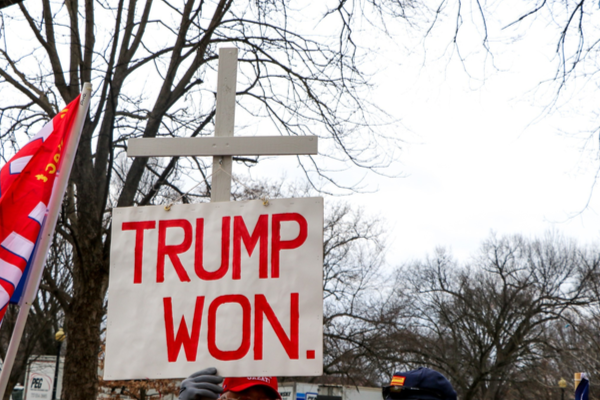Jan 7, 2021
As pro-Trump rioters broke into the Capitol on Wednesday to stop members of Congress from certifying the results of the 2020 election, some evangelical leaders denounced the violence — including elected representatives who continued to support President Donald Trump’s debunked claim that the election was “stolen.”
Read the Full Article

Already a subscriber? Login
